- California Assembly OKs highest minimum wage in nation
- S. Korea unveils first graphic cigarette warnings
- US joins with South Korea, Japan in bid to deter North Korea
- LPGA golfer Chun In-gee finally back in action
- S. Korea won’t be top seed in final World Cup qualification round
- US men’s soccer misses 2nd straight Olympics
- US back on track in qualifying with 4-0 win over Guatemala
- High-intensity workout injuries spawn cottage industry
- CDC expands range of Zika mosquitoes into parts of Northeast
- Who knew? ‘The Walking Dead’ is helping families connect
70s-80s iconic singer-composer Kim Min-ki dies
Kim Min-ki, a singer, composer and playwright who nurtured countless talented artists while operating an iconic theater on Seoul’s vibrant Daehangno theater street for more than 30 years, died Sunday after a battle with stomach cancer. He was 73.
Kim was known for operating Hakchon Theater, which was a Daehangno landmark, as well as his 70s’ songs “Morning Dew” and “Evergreen Tree.”
His family said Monday that the renowned musician was receiving care at home when his condition worsened Friday.
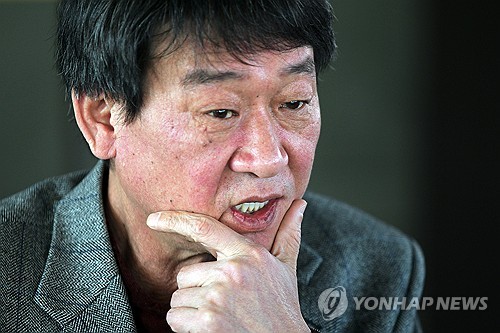
“We took him to an emergency room on the morning of Saturday. But his condition was poor from the moment he arrived at the hospital, and he passed away at 8:26 p.m. the following day,” Kim Sung-min, nephew of the late musician and head of the general affairs team at Hakchon Theater, said during a press conference at a cafe in Seoul.
While there were no formal last words, the musician had expressed gratitude to his family and close friends over the past three to four months, the nephew said.
As for the closure of the Hakchon Theater, he quoted his late uncle as saying, “It’s the right decision to end the theater now. I’ve done all I can do.”
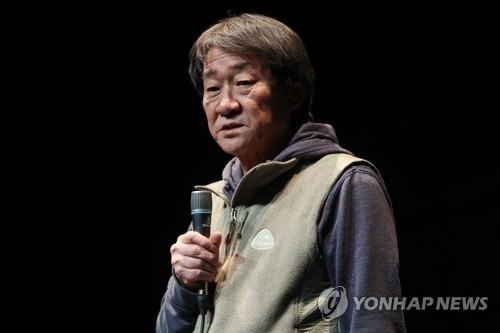
Born in 1951, he began his musical career as part of a folk song duo while attending a university in Seoul in 1969.
Kim rose to prominence as the composer of the song “Morning Dew,” performed by Korean folk singer Yang Hee-eun. The song later became a popular protest song among pro-democracy student activists.
Kim’s music defied the pressure of the then military-backed governments. His albums were pulled from record stores, and songs banned for criticizing the regime and society.
Despite working in a garment factory and a mine to make a living, he continued to express his thoughts through song.
Kim’s influence extended beyond music, as he actively produced plays and musicals in the theater scene.
In 1991, he established the Hakchon Theater in Daehangno, which became a haven for aspiring artists and a hub for cultural exchange.
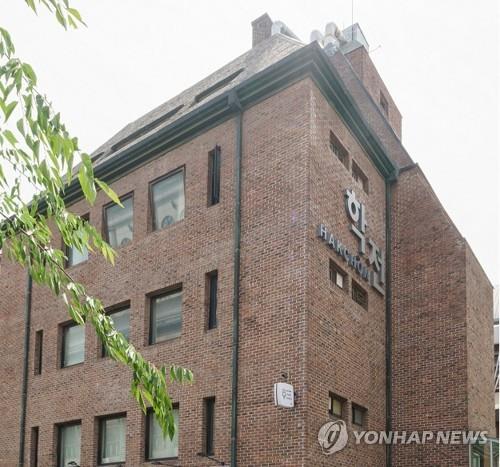
Hakchon served as a launchpad for many prominent Korean singers, including the late Kim Kwang-seok, Yoon Do-hyun, Na Yoon-sun, and Jeong Jae-il, who honed their craft at the venue.
Kim’s landmark rock musical “Line 1″ premiered at the theater in 1994. His Korean adaptation of an original German musical, “Line 1″ tells the story of a woman encountering diverse people with all different socioeconomic backgrounds on Seoul’s subway Line 1. The musical holds a significant place in Korean musical theater history. It ran for over 8,000 performances until 2023, captivating over 700,000 theatergoers.
Financial strain and his health issues led to the theater’s closure in March of this year, after 33 years of operation.
Kim is survived by his spouse and two sons.








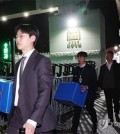
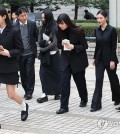
![넷플릭스 2025년 라인업 공개 [넷플릭스 제공. 재판매 및 DB 금지]](http://www.koreatimesus.com/wp-content/uploads/2025/04/20250415135202671-copy-120x134.jpg)
